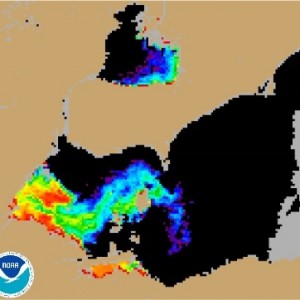The Stream, August 5: Glaciers Are Retreating At Unprecedented Rate, Study Finds
The Global Rundown |
Glaciers worldwide are melting much more quickly than they did in the past century, scientists found. Myanmar appealed for international flood aid, an Australian court revoked approval for a proposed coal mine, and Oklahoma passed new rules to limit underground injections of oil and gas wastewater. Rural communities face water shortages in Egypt, and corn crops in France are taking a hit from a heat wave and drought.
“There was a time when the scientific, legal, policy and other concerns related to this issue had to first be carefully researched and debated in order to provide a valid framework for such action. That time is over.”–Dana Murphy, a member of the Oklahoma Corporation Commission, on new rules announced by the commission to reduce the underground injection of wastewater from oil and gas wells by 38 percent in certain areas. The rules are meant to curb earthquakes. (Reuters)
By The Numbers |
210,000 people Number affected by floods triggered by monsoon rains in Myanmar. The government appealed for international aid on Tuesday. Reuters
19 percent Projected drop in European Union corn production this year after reaching a record last year. Corn crops in France, the largest producer in Europe, are struggling due to a heat wave and drought. Bloomberg
Science, Studies, And Reports |
Glaciers are retreating globally at a “historically unprecedented” rate, according to a study published in the Journal of Glaciology. Glaciers are losing between 0.5 and 1 meter of ice thickness each year, the study’s author said. Guardian
On The Radar |
Rural communities in Egypt are already facing acute water shortages—a situation the United Nations expects could spread across the country by 2025. Illegal water connections and deteriorating infrastructure exacerbate the problem. Mada Masr
A federal court decision revoked approval for the proposed Carmichael coal mine in Queensland, Australia, because government ministers, in granting the approval, did not consider the mine’s effect on two threatened species. Opponents of the mine have previously raised concerns about its effect on groundwater supplies. Guardian
A news correspondent for Circle of Blue based out of Hawaii. She writes The Stream, Circle of Blue’s daily digest of international water news trends. Her interests include food security, ecology and the Great Lakes.
Contact Codi Kozacek







Leave a Reply
Want to join the discussion?Feel free to contribute!